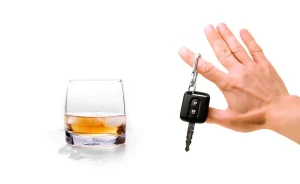
It has been recognized as a mental illness since the 1980s, when the American Psychiatric Association identified alcoholism as a primary mental health disorder. Interestingly, the American Medical Association recognized alcoholism as a disease as early as the 1950s. 2023—The White House Report on Mental Health Research Priorities, published in February, outlined administration-wide needs and opportunities to advance mental health research. Areas of emphasis included addressing mental health inequities, understanding and leveraging digital mental health interventions, and supporting and expanding the mental health workforce. NIMH substantively contributed to the development of the report, which highlighted several NIMH-supported research initiatives.
Does drinking three beers a day make me an alcoholic?

Alcoholism, now known as alcohol use disorder, is a condition in which a person has a desire or physical need to consume alcohol. Treatment can include counseling, medications, residential programs, and support groups. According to the report, substance use disorders result from changes in the brain that occur with the repeated use of alcohol or drugs.
- “It is not a complete loss of autonomy—addicted individuals are still accountable for their actions, but they are much less able to override the powerful drive to seek relief from withdrawal provided by alcohol or drugs.”
- Excessive alcohol use is a term used to describe four ways that people drink alcohol that can negatively impact health.
- Compounding the problem already experienced by those facing alcoholism is the progressive nature of the disease.
- Thus, here, too, it’s important to be cognizant of the signs of PTSD in patients with AUD, and vice versa.
© 2024 Harvard Health Publishing® of The President and Fellows of Harvard College
Learn about other ways to lower rates of excessive alcohol use and alcohol-related injury and overdose. It can be dangerous to use two or more drugs at the same time, or within a short time of each other. 2019—On March 19, the FDA approved the medication brexanolone as the first successful treatment for severe postpartum depression. In the 1980s and 1990s, NIMH intramural researcher Steven Paul, M.D., showed that the neurosteroid allopregnanolone promoted anesthesia during pregnancy by stimulating the inhibitory neurotransmitter GABA. Subsequent research demonstrated that brexanolone, an intravenous form of allopregnanolone, treated postpartum depression by continuing the stimulation of GABA into the postpartum period.
Alcohol Use Disorder Symptoms (and Signs in Other People)

2013—On September 20, Thomas C. Südhof, M.D., and Richard H. Scheller, Ph.D., received the Lasker Basic Medical Research Award. The researchers, whose work had been supported by NIMH, were recognized for their work mapping the molecular mechanisms involved in neurotransmitter release. Dr. Südhof later received the 2013 Nobel Prize in Physiology or Medicine for his NIMH-supported research on how the brain sends and receives chemical messages. 1967—On January 1, NIMH was separated from NIH by executive order and made an independent division within the U.S. However, the NIMH Intramural Research Program, which conducted studies in the NIH Clinical Center and other NIH facilities, remained at NIH under an agreement for joint administration between NIH and NIMH. Seeking help for addiction may feel daunting or even scary, but several organizations can provide support.

The collective wisdom gleaned from these experiences can light the way for others. The effectiveness of support groups is evident in the countless stories of individuals who have become sober with the help of these communities. They are not just a means to an end but a continuous source of inspiration and accountability for many. Participation in support groups often involves regular meetings, either in-person or online, where members can discuss their progress, setbacks, and strategies for maintaining sobriety.
- Substance abuse takes a significant toll on the body, often leading to poor nutrition and weakened health.
- Under this mechanism-based approach to intervention development and testing, trials are designed not only to test whether an intervention works but also to advance understanding of how the intervention works.
- The congressionally funded effort, led by Jonathan O. Cole, M.D., spurred the discovery of blockbuster drugs chlorpromazine and meprobamate, to treat mental disorders.
- Alcohol use disorder (AUD) is listed in the Diagnostic and Statistical Manual of Mental Disorders (DSM).
- DBT also focused on helping people build skills to manage intense emotions, reduce self-destructive behaviors, and improve relationships.
- In the healthy brain, dopamine is released in response to natural rewards, such as food or exercise, as a way of saying, “that was good.” But drugs hijack dopamine pathways, teaching the brain that drugs are good, too.
Personal Stories of Recovery and Empowerment
Subsequent analyses Why Alcoholism is Considered a Chronic Disease and publications examined the impact of the interventions on various areas of functioning and the long-term course of youth in the study. Quitting drinking on its own often leads to clinical improvement of co-occurring mental health disorders, but treatment for psychiatric symptoms alone generally is not enough to reduce alcohol consumption or AUD symptoms. Among people with co-occurring AUD and psychiatric disorders, AUD remains undertreated, leading to poorer control of psychiatric symptoms and worse outcomes. AUD is a brain disorder and disease that occurs when people cannot stop or control their drinking despite adverse effects on relationships, work or school, finances, and overall health. Healthcare providers use the umbrella term “alcohol use disorder” to classify a wide range of problematic alcohol use, such as alcohol abuse, dependence, addiction, and severe alcohol use disorder (alcoholism). Many people with alcohol use disorder do recover with behavioral therapies, medications, or a combination of the two.

